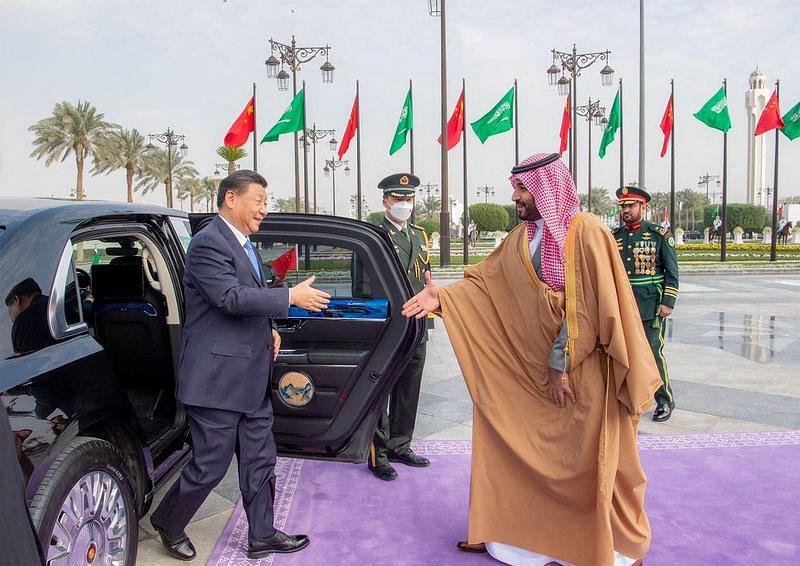Several strategic agreements were signed between Saudi Arabia and China on Thursday. On the same day, Chinese President Xi Jinping was in town. One of these agreements involved working with telecommunications giant Huawei. The company’s expanding presence in the Gulf has caused security worries in the US.
A warm welcome in a nation constructing a new kind of international cooperation outside the West was provided by King Salman’s signing of the “Comprehensive Strategic Partnership Agreement” with Xi Jinping.
In contrast, US President Joe Biden gave a low-key welcome in July. Relations between the two men were strained due to Saudi Arabia’s oil strategy and the 2018 murder of Jamal Khashoggi. Given China’s rising strength and its relations with Riyadh at an all-time low, the US stated on Wednesday that Xi’s visit is a manifestation of China’s ambitions to exercise influence globally and won’t alter US policy towards the Middle East.

Huawei is constructing 5G networks in most Gulf states
Despite US worries that Gulf allies utilizing the Chinese company’s equipment may suffer security dangers, a pact on cloud computing and the construction of a high-tech park in a Saudi city was reached with Huawei Technologies Co Ltd. of China. In addition, Huawei is constructing 5G networks in most Gulf states despite US objections.
In July, Prince Mohammed returned following the murder of Jamal Khashoggi. Moreover, he banged fists with Biden as he dealt with US resentment over the oil supply and pressure from Washington to isolate Russia.
Saudi Arabia and the UAE said that the crown prince of Saudi Arabia and the president of the UAE. They had worked together to lead mediation efforts. The efforts resulted in the release of US basketball player Brittany Griner in a prisoner swap with Russia.
Further enhancing their worldwide stature. Xi said he was on a “groundbreaking visit” to usher in “a new era of ties between China and the Arab world, the Gulf Arab countries, and Saudi Arabia.”
/cloudfront-us-east-2.images.arcpublishing.com/reuters/6NFALS2JFZPBTFHY3747AICZU4.jpg)
China’s engagement in critical Gulf infrastructure
China and the Arab nations, according to Xi, “will continue to hoist the banner of non-interference in domestic affairs aloft.” China will work to make the summits “a milestone event in the history of Sino-Arab relations,” according to Xi. Xi will meet with other Gulf oil producers and a larger group of Arab leaders on Friday. Beijing views Saudi Arabia as “a vital force in a multipolar world.”
Other Gulf nations, like Saudi Arabia and the UAE. They assert that they do not support any one group of world powers. They are also broadening their partner networks to further their economic and security objectives.
The US is outraged by China’s engagement in critical Gulf infrastructure. It is the world’s largest energy consumer and a vital commercial partner for the Gulf nations. As the area works to diversify its economy, bilateral connections have grown.
On Wednesday, the Saudi oil minister declared that Riyadh would continue to be Beijing’s “dependable and reliable” energy partner. In addition, the two nations will enhance their collaboration by establishing a regional center in Saudi Arabia for Chinese companies.
According to the state news agency SPA, Chinese and Saudi companies also inked 34 agreements for investment. The investment is in green energy, information technology, cloud services, transportation, construction, and other industries.
Although it would not provide numbers, it had previously stated that the two nations would sign first deals totaling $30 billion.












